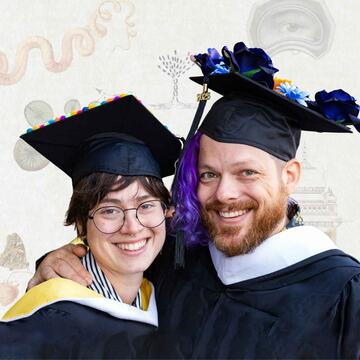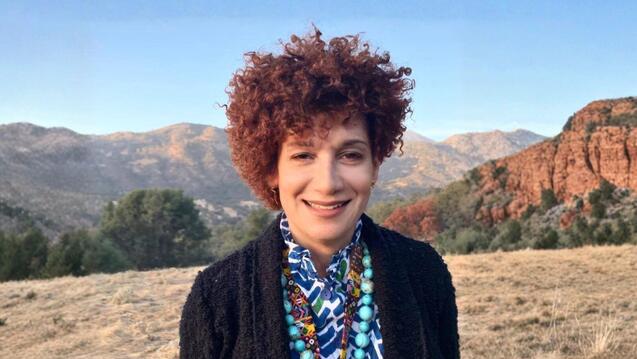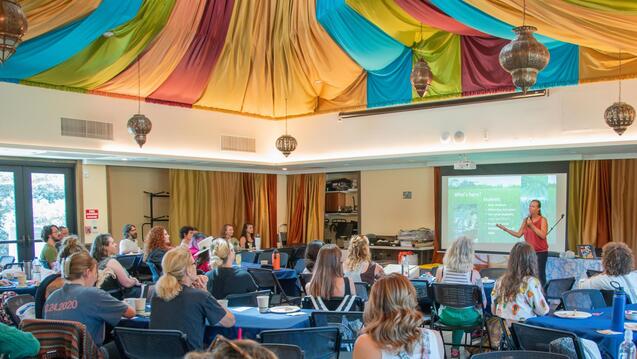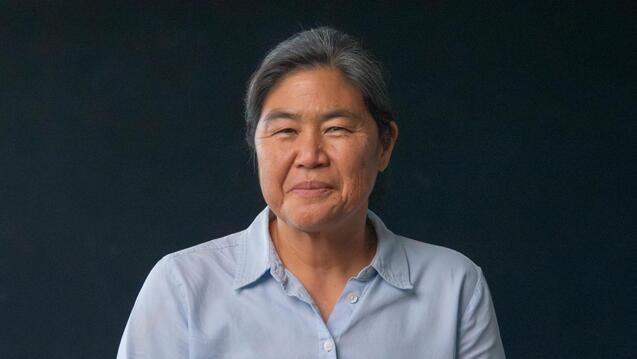Professor Mimi Savage introduces CIIS' new Expressive Arts Coaching & Community Building master's program, designed for artists and coaches seeking to support transformation through creativity.

The Value of a Liberal Arts Education
Why the humanities are more important than ever
Evidence of the tech industry is everywhere in San Francisco these days--even in CIIS' formerly downscale corner of Mission Street. The new Twitter building looms just around the corner, and techies crowd local cafés and restaurants.
In this technology-obsessed climate, it's not easy to be a student pursuing a liberal arts education. Literature and philosophy majors are likely to hear quips like "That should land you a nice, fat, minimum-wage paycheck!" or "I hope you like flipping hamburgers!"
San Francisco isn't the only place where humanities majors feel marginalized, of course. Historian Jill Lepore recalls a student who came to an information meeting for the integrated history and literature program she chairs at Harvard. The student was enthusiastic about the program, but throughout the meeting she was bombarded with messages from her parents. "They kept texting her: Leave right now, get out of there, that is a house of pain!" Lepore told The New York Times.
Are There Jobs?
Parents and students alike worry that a liberal arts focus won't provide the job opportunities or compensation to match those available in STEM fields like computer science, tech, engineering, and math, for example. CIIS Provost Liz Beaven acknowledged this recently: "The liberal arts have been a fixture of American undergraduate education for years, and have a long history, dating back to Classical Greece, where they were considered to be the hallmark of an educated (free) individual. But this model has declined in popularity with trends toward increasing specialization, desire for ‘career readiness,' and emphasis on STEM education."
Indeed, there has been a significant drop in humanities majors in recent years. According to one report, 11 percent of students majored in the humanities at the conclusion of World War II. The number rose to 17 percent in the 1960s but is now just 6 percent, as more students are choosing "vocational majors," including STEM and business subjects.
Some colleges are even scrapping less popular majors, many in the humanities, because of declining enrollment. Last year, the University of Wisconsin-Superior suspended majors including sociology, theater, and political science. And the Chronicle of Higher Education recently reported that Assumption College, a small liberal arts college in Worcester, MA, is eliminating majors including art history, classics, French, and studio art. Hoping to increase enrollment, the college is adding new STEM programs, including actuarial science, data analytics, and health sciences.
Do What You Love?
Even at liberal arts colleges, students are now gravitating to STEM courses, according to a recent article in Inside Higher Ed: "What liberal arts colleges historically have said to students is, ‘Do what you love, and the rest will take care of itself,'" said Sarah Bolton, president of the College of Wooster. Today, she said, students, no matter what their interests, are gravitating to quantitative courses--even as electives--because they consider them more practical than courses in the humanities.
Of course, in terms of pure bottom-line numbers, there is no disputing that STEM careers offer higher earning potential than humanities careers. A 2017 report found that majors including engineering, physics, finance, and computer science yield the best hiring prospects and highest pay. The same study listed art, music, religious studies, and art history as majors that offer consistently low-starting and midcareer salaries.
But cost-benefit analyses like these don't factor in the countless incalculable advantages that a liberal arts education provides. Studying history, for example, helps us understand the roots of the human experience and learn from past mistakes. Philosophy promotes examination of moral questions, and the nature of reality and existence. Classes on ethics and civics help us become more informed and engaged citizens. Literature, poetry, and theater not only entertain and enlighten, they expand our understanding of people different from ourselves.
Provost Beaven believes a liberal arts education is particularly critical today: "In a time of social and cultural polarization, division, and a flood of new knowledge and information, it may be of greater value than ever before in the human story," she said. As cultural critic Leon Wieseltier puts it, "People in trouble don't turn to regression analysis. Their souls require the fortification and the wisdom that only humanistic thinking can provide."
In a time of social and cultural polarization, division, and a flood of new knowledge and information, a liberal arts education may be of greater value than ever before in the human story.
- CIIS Provost Liz Beaven
Fixing the "Empathy Gap"
These benefits may explain why a recent study by the American Academy of Arts and Sciences found that most humanities graduates have a high level of job satisfaction. A majority of graduates also said they were able to find employment and are satisfied with the salaries they receive.
Silicon Valley has even acknowledged the importance of the humanities in recent years. Writing in the New Yorker, technology journalist Om Malik identified an "empathy gap" in the Valley. And in a Fortune commentary titled, "Silicon Valley Techies Need a Serious Lesson in the Humanities," designer Gadi Amit argues that the absence of a humanities orientation in the tech industry could threaten its very future.
CIIS' Approach
Provost Beaven agrees. "Tech companies need employees who are highly specialized in fields such as programming, but they need far more employees who have flexible, mobile thinking, can work both independently and as a collaborative and flexible part of a team, and-most importantly-are creative thinkers and doers," she says. "Our approach at CIIS nurtures and encourages such qualities by emphasizing the value of critical thinking, diverse learning styles, and independent thought--all in the context of a supportive and vibrant community."
For CIIS President Emerita Judie Wexler, debates over the value of a STEM versus liberal arts education create a false dichotomy: The future will require both. "All of our institutions benefit from a range of viewpoints and areas of expertise," she concludes. "As a society--and as a planet--we need to educate our students in a broad range of areas, because we are going to need many different talents and areas of expertise to adapt and thrive in a rapidly changing world."
Related News
Expressive arts coaching uses creativity to foster resilience, connection, and meaningful change.
Professor Lani Chow explains how CIIS' Clinical Psychology Psy.D. program takes an integrative approach to training therapists in depth psychological traditions.



